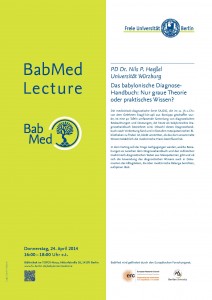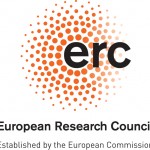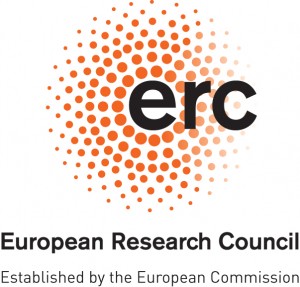26. May 2014 von Agnes Kloocke
Of the Berlin BabMed project, Ulrike Steinert and Strahil V. Panayotov will take part in the Tel Aviv event (see detailed programme of June 19, 2014).
Israel Science Foundation
The Israel Academy of Sciences and Humanities
Bible Lands Museum Jerusalem
Tel Aviv University
Jacob M. Alkow Department of Archaeology and Ancient Near Eastern Cultures
Sonia and Marco Nadler Institute of Archaeology
RESEARCH WORKSHOP OF THE ISRAEL SCIENCE FOUNDATION
Transmission, Translation, and Reception – Three Thousand Years of
Textual Production and Dissemination in the Ancient Near East
Contact and further information:
Dr. Amir Gilan
Lecturer in Hittite and Anatolian Studies
Dept. of Archaeology and Ancient Near Eastern Cultures
Tel Aviv 69978
Israel
Office Tel: 03-6409590
CONFERENCE PROGRAMME
June 17, 2014 (Day One)
Lecture Hall 01 Webb Building
09:45-10:00 Greetings
Textual Production and Dissemination from the Third Millennium into
the First Millennium
10:00-11:30
Walther Sallaberger (Ludwig-Maximilians-Universität München)
Updating Primeval Wisdom: The Instructions of Shuruppag in Early
Dynastic and Old Babylonian Perspective
Andrew George (School of Oriental and African Studies, University of London)
The Transmission and Reception of Babylonian Scholarly and Literary
Texts on the Basis of New Finds from Dur-Abieshuh, the Sealand and
Tigunanum
11:30-11:45 Coffee Break
11:45-13:15
Nili Samet (Bar-Ilan University)
The Motif of Vanity in Ancient Near Eastern Literature: Transmission,
Reception and Adaptation
Maurizio Viano (Tel Aviv University)
Searching for Nippur in the Western Periphery: The Transmission of
Sumerian Literature between Northern and Southern Babylonian
Traditions.
13:15-14:45 Lunch
14:45-16:15
Marco Bonechi (Consiglio Nazionale delle Ricerche, Roma)
Broadcasting from Kish, Receiving at Ebla (and back?): The Circulation
of Written Texts between Mesopotamia and Syria in the Third Millennium
and the Limits of our Knowledge
Yoram Cohen (Tel Aviv University)
Les neiges d’antan: The Transmission of Mesopotamian Wisdom Literature
in the Ancient Near East and Beyond
16:15-16:30 Break
16:30-18:00
Takayoshi Oshima (University of Jena)
Transmission of Babylonian Prayers during the Second and First Millennia BCE
Uri Gabbay (Hebrew University)
From Temple to Temple: The Transmission and Dissemination of Emesal Prayers
June 18, 2014 (Day Two)
Seminar Room 496 Gilman Building
09:30-11:00
Klaus Wagensonner (University of Oxford)
Linking Assur: The Transmission of Lexical and Literary Texts in
Middle Assyrian Assur
Mark Weeden (School of Oriental and African Studies, University of London)
Lexical Lists in the Cuneiform Periphery
Alexandra Bourguignon (University of Brussels)
Lexical Lists: From Mesopotamia to Greece
11:00-11:15 Coffee Break
A Comparative Perspective of the Transmission of Literary and Scholarly Texts
11:15-12:00
Tzvi Langermann (Bar-Ilan University)
The Transmission of Babylonian and Indian Knowledge to Islamic
Civilization and Their Transformation
12:00-14:00 Lunch
Bible Lands Museum Jerusalem
14:00-15:30
Jonathan Ben-Dov (University of Haifa)
Influence or Participation? On the Inadequacy of the Term ‘Influence’
in Biblical Studies
Noam Mizrachi (Tel Aviv University)
Faithful Creativity: Textual and Literary (Re-) Generation of a Prophetic Oracle
15:30-17:00
Wayne Horowitz (Hebrew University)
The Transmission and Reception of Cuneiform Script in the Ancient Near
East – The Bible Lands Museum Collection
Noam Mizrahi (Tel Aviv University)
The History of Discovery and Publication of the Dead Sea Scrolls – The
Shrine of the Book
June 19, 2014 (Day Three)
Literary Transmission and the Conceptualization of Hittite kingship
Seminar Room 496 Gilman Building
10:00-11:30
Beate Pongratz-Leisten (New York University, Institute for the Study
of the Ancient World)
The King and the Media: Assyrian Ideological Discourse as Part of the
Broader Syro-Anatolian Scene
Doris Prechel (Johannes Gutenberg-Universität Mainz)
The Hittite Substitute King Ritual – A Prime Example of Transmission?
11:30-11:45 Coffee Break
11:45-13:15
Amir Gilan (Tel Aviv University)
Sargon in Anatolia? The Hittite Legends of the Kings of Akkad
Noga Ayali-Darshan (Bar-Ilan University)
The Dissemination and Reception of ‘The Grain-God, the Sea and the
Goddess Theme’ in Hurro-Hittite and Egyptian Literature
13:45-14:45 Lunch
Transmission and Translation of Scientifc Texts as Promoters of Knowledge
14:45-16:15
Ulrike Steinert (Freie Universität Berlin)
The Transmission of Medical Texts and Knowledge in the Ancient Near
East: A Case Study of Women’s Healthcare
Strahil Panayotov (Freie Universität Berlin)
On the Textual Production of the Babylonian Medical Series on Fumigation
16:15-16:30 Break
16:30-18:00
Jeanette C. Fincke (School of Oriental and African Studies, University
of London)
The Transmission of Celestial Omens from Mesopotamia to the Hittites
Wayne Horowitz (Hebrew University)
The Mesopotamian Uranology Texts: From Assyria to Babylon and Uruk
Closing Discussion






 Die
Die